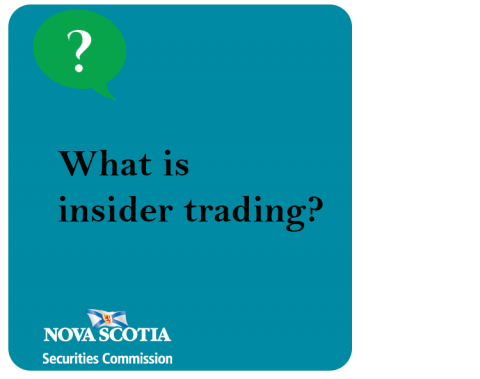Submitted by nsscadmin on

Illegal insider trading is the buying or selling of securities while possessing undisclosed material information about a company or fund. This material information could include financial results, operational events, management changes or other information that may impact the price. Passing the undisclosed material information on to someone else so they can buy or sell securities is also illegal This is called tipping.
There are a number of examples of insider trading, but two well-known involve Martha Stewart in the United States and Stan Grmovsek and Gil Cornblum in Canada.
Martha Stewart was charged with insider trading in relation to her trading securities of ImClone. She sold nearly 4000 shares in the company after receiving inside information from her broker. This information came to her broker after the CEO of ImClone sold all his share in the company. Shortly after these sales the FDA rejected a new cancer treatment by ImClone which caused its share price to drop 16 per cent in one day. Selling her shares prior to the drop allowed Stewart to avoid a loss of $45,000. Since the sale was based on non-public, material information it was considered to be insider trading. Despite being charged with insider trading Stewart was instead convicted on charges of obstruction, conspiracy, and perjury for which she served five months in prison.
Stan Grmovsek and Gil Cornblum were the centre of one of the largest insider trading rings in Canada. Their illegal insider trading scheme ran for 14 years and earned the pair approximately nine million dollars. Grmovsek and Cornblum obtained inside information about pending takeovers and other corporate dealings by secretly accessing files of Toronto and New York law firms that employed Cornblum. He tipped Grmovsek who processed trades through offshore accounts. They initially kept their trades small to avoid detection, but got sloppy and made bigger and more expensive trades catching the eye of banks and regulators. Grmovsek was sentenced to 39 months in prison, while Cornblum committed suicide days before he and Grmovsek had agreed to plead guilty to insider trading charges.
